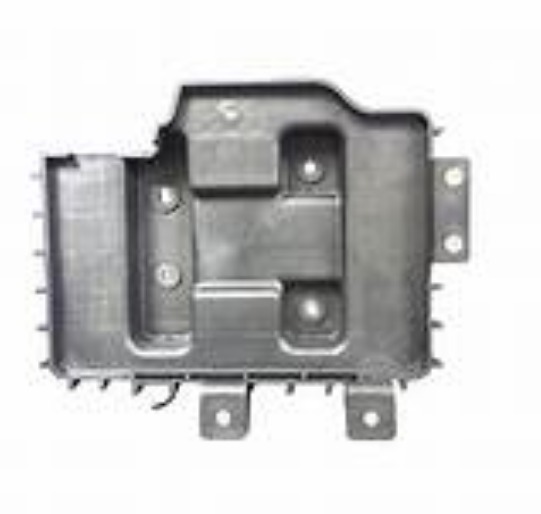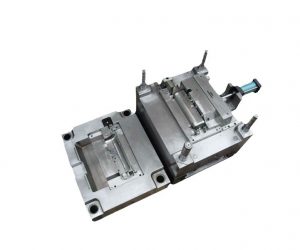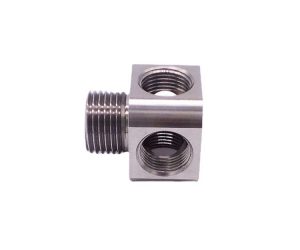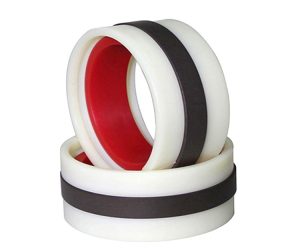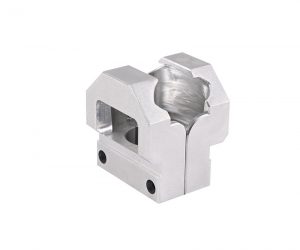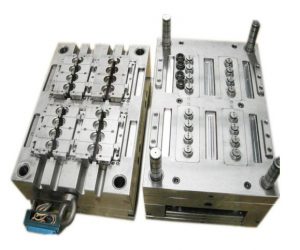Key Factors to Consider When Choosing a CNC Machined Parts Manufacturer
- Experience and Expertise
- When selecting a CNC machined parts manufacturer, it’s essential to ensure they have a solid track record of experience and expertise. The manufacturer's experience in your industry and their understanding of your specific requirements are crucial for producing high-quality parts. Look for customer testimonials and case studies to gauge their reputation and previous success in similar projects.
- Equipment and Technology
- Advanced equipment and technology are essential for high-quality production. Check whether the manufacturer has state-of-the-art CNC machines, CAD/CAM systems, and measurement tools that can meet your production needs. Manufacturers with advanced equipment can achieve higher precision and faster turnaround times, which can significantly improve both the efficiency and quality of the final product.
- Quality Control
- Ensuring high-quality products should be a priority for any manufacturer. Ask about their quality control processes and whether they follow internationally recognized standards such as ISO 9001. A manufacturer with a strong quality management system (QMS) will have rigorous inspection and testing procedures to minimize defects and guarantee that the final products meet the required specifications.
- Production Capacity and Delivery Time
- Confirm that the CNC machined parts manufacturer has the capacity to handle your order volume and production schedule. It’s essential to know their lead times and if they can meet your deadlines. In addition, evaluate whether they can handle rush orders or accommodate future scale-ups as your business grows.
- Price and Cost
- Price is an important consideration, but it should not be the sole deciding factor. Compare pricing from multiple suppliers, but also take into account the total cost of ownership, including transportation, packaging, and potential hidden costs. Choosing a manufacturer based solely on low prices may compromise the quality of the parts.
- Customer Service
- Good customer service is vital for ensuring smooth communication and resolution of any issues that may arise during production. Look for a supplier that is responsive, offers technical support, and is willing to assist you throughout the manufacturing process, including post-production. A good relationship with the manufacturer can lead to better outcomes in the long term.
- Supply Chain Management
- Effective supply chain management is key to ensuring that materials are readily available and products are delivered on time. Check whether the manufacturer has solid relationships with reliable suppliers and whether they can handle any challenges or delays that might arise during production.
Key Considerations for Selecting Stock for CNC Machining
- Material Compatibility
- Size and Dimensional Requirements
- Choose stock material that is sufficiently sized to meet the dimensional requirements of your final component. Make sure the material has enough length, width, and thickness to accommodate the design while minimizing material waste.
- Material Cost
- Material cost plays a significant role in determining the overall cost of manufacturing the part. Assess the cost of the material relative to its properties and the project's budget, ensuring a balance between material quality and price.
- Availability and Lead Time
- Make sure the selected stock material is readily available from suppliers with reliable lead times. Delays in material procurement can push back production schedules, so it’s crucial to ensure that the stock material can be delivered when needed.
Factors to Consider When Selecting Components for CNC Machining
- Design Complexity
- Assess whether the design of the component can be efficiently produced using the CNC machine tool. More complex geometries may require multi-axis machining, specialized tooling, or additional post-processing.
- Tolerance and Precision Requirements
- CNC machining is highly accurate, but it’s important to know the required tolerances for the component. Make sure the selected machine can consistently achieve these specifications to meet the needs of your application.
- Surface Finish and Quality
- The surface finish requirements of the component can influence the machining process. CNC machines can achieve different surface finishes, so ensure that the equipment can meet your expectations for roughness or smoothness.
- Volume and Production Rate
- The required volume and production rate will affect the choice of CNC machine and setup. High-volume production may require faster cycle times, while low-volume runs might be suited for specialized or high-precision machines.
How to Calculate the Cost of Machined Components
- Material Cost
- Start by calculating the cost of the raw materials based on the quantity and type required. The cost of materials can fluctuate based on factors such as market prices and availability.
- Machining Time
- Estimate the time it will take to machine each part. This includes setup time, tool changes, cutting time, and finishing operations. The longer the machining time, the higher the cost will be.
- Labor Costs
- Factor in the labor costs associated with operating the CNC machine, including the operator’s wages, setup time, and programming time. Labor costs can vary depending on the complexity of the work being done.
- Tooling Costs
- Include the cost of the cutting tools, inserts, and other specialized tooling required for machining. Tooling costs can be significant, especially for high-precision or customized components.
- Overhead Costs
- Overhead includes indirect costs such as facility maintenance, utilities, and administrative expenses. These costs are typically allocated across all projects and must be considered when calculating the total cost.
- Profit Margin
- Finally, determine the desired profit margin for the business. This is typically added to the overall cost to ensure that the manufacturing process remains profitable.
By factoring in all of these elements—material costs, machining time, labor, tooling, overhead, and profit margins—you can calculate the full cost of producing machined components and make informed decisions regarding pricing, cost-saving opportunities, and profitability.
Steps to Select the Right CNC Machined Components Manufacturer
1. Determine Your Specific Needs and Requirements
- Identifying your business's specific needs is the first critical step when choosing a CNC machined components manufacturer. The type of parts you need—whether simple brackets or highly complex aerospace components—will influence your decision. Consider the following:
- Part Geometry: Understand the shape and size of the components you need. This includes specific tolerances and material requirements.
- Material Selection: The material of the part is crucial for functionality and durability. Ensure the manufacturer can handle your required materials.
- Surface Finish: If your parts require a specific surface finish, make sure the manufacturer has the capabilities to meet those standards.
- Order Volume: Assess your production needs. Are you looking for low or high-volume production? If you need a small quantity, a manufacturer focused on high-volume orders may not be the best choice.
2. Research Potential Manufacturers and Their Capabilities
- To find the right partner, conduct thorough research:
- Search Online: Start by searching for manufacturers using specific keywords related to your industry. For example, "precision aerospace machining" or "automotive engine parts manufacturing" will help you find manufacturers with the relevant expertise.
- Evaluate Websites: A company’s website is often the first point of contact. Check for detailed information about their machinery, capabilities, certifications (like ISO 9001:2015), and past projects. This will give you an idea of their technical expertise.
- Industry Associations & Trade Shows: Industry events and trade shows can be excellent opportunities to meet manufacturers in person, assess their capabilities, and ask questions about their work. Associations often have member directories that include trusted manufacturers in your field.
3. Contact Potential Manufacturers and Ask Questions
- After compiling a list of potential manufacturers, initiate contact to evaluate their suitability:
- Questions to Ask:
- What materials do you specialize in?
- What is your lead time for production?
- How do you handle quality control and inspections?
- What is your experience with parts similar to mine?
- Evaluate Communication: Pay attention to how quickly and clearly they respond. Do they show interest in understanding your needs? A manufacturer that listens and provides clear answers is likely to be a reliable partner.
- Questions to Ask:
4. Consider Key Factors: Quality, Cost, and Lead Time
- Quality: Quality is paramount in CNC machining. Poor quality parts can lead to failures, warranty issues, and costly repairs down the line. Look for manufacturers that adhere to high-quality standards like ISO certification or other relevant industry-specific certifications. Request samples or arrange for a facility visit to assess their quality control procedures.
- Evaluate Certifications: Ensure the manufacturer has quality management systems in place. ISO 9001:2015 certification is a good indicator that they follow strict quality management protocols.
- Cost: While cost is an important factor, it should not be the sole deciding point. Cheaper components may have a lower upfront cost but could result in higher long-term costs due to poor quality, delays, or additional repairs. Ensure you're comparing quotes that include all costs—materials, machining time, tooling, labor, and shipping.
- Consider Bulk Discounts: If you plan on ordering large quantities, check if there are any discounts or cost benefits for high-volume orders.
- Lead Time: Lead time is critical, particularly if you're working on a tight schedule. While some manufacturers may offer lower prices, they might not be able to deliver quickly enough to meet your needs. Ask for references from customers who needed quick turnarounds to ensure reliability.
- Evaluate Reliability: Check customer feedback regarding delivery times and consistency to assess whether they meet deadlines reliably.
5. Final Evaluation: Quality Control and Long-Term Compatibility
- Quality Control Measures: Thoroughly understand the manufacturer's quality control processes. How do they monitor consistency? Do they have regular inspections, and what tools do they use for measuring parts? If the manufacturer has high standards of quality control, this will ensure the consistency and reliability of the final product.
- Long-Term Relationship: It’s important to consider the potential for a long-term partnership with the manufacturer. Having a reliable partner who understands your evolving needs and can grow with your business is invaluable. Evaluate their willingness to provide ongoing support, make design adjustments, or handle any future challenges that may arise.
Conclusion
In conclusion, selecting the right CNC machined components manufacturer requires careful consideration of several factors, from the specifics of your parts and materials to the manufacturer's capabilities, quality control measures, and cost structures. By taking the time to evaluate your business needs, researching potential manufacturers thoroughly, and considering essential elements such as quality, cost, and lead time, you can ensure that you choose the right partner for your CNC machining needs.
A reliable and capable CNC machining partner will help you produce high-quality parts efficiently and meet your project deadlines, ultimately contributing to the success of your business.
